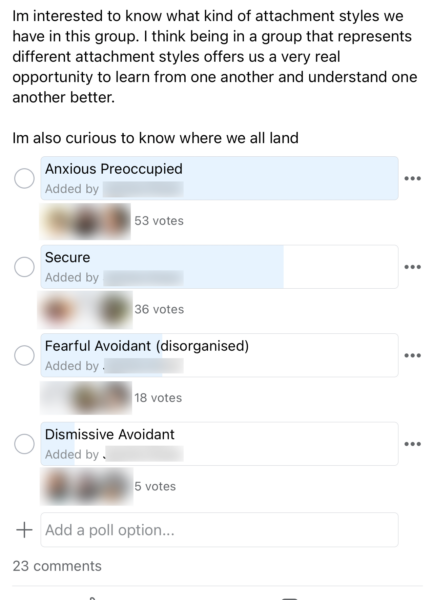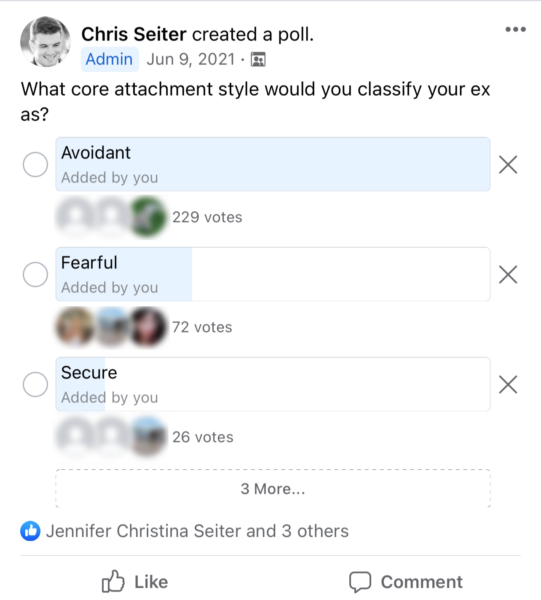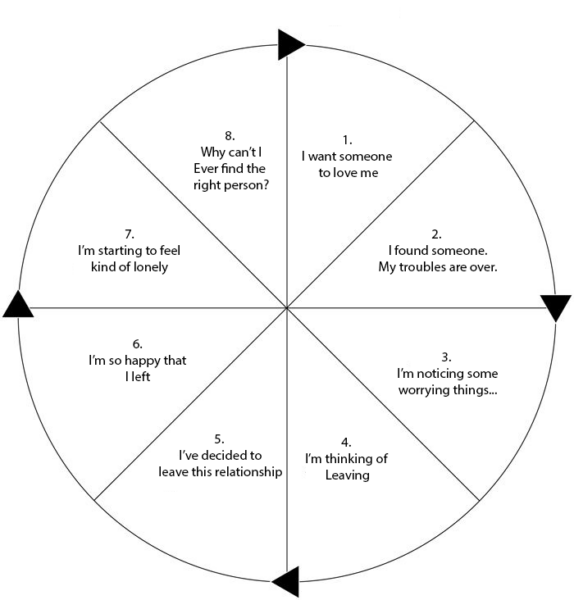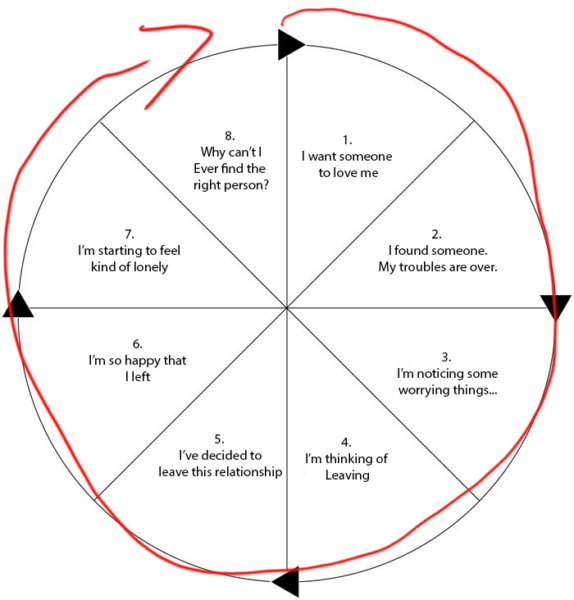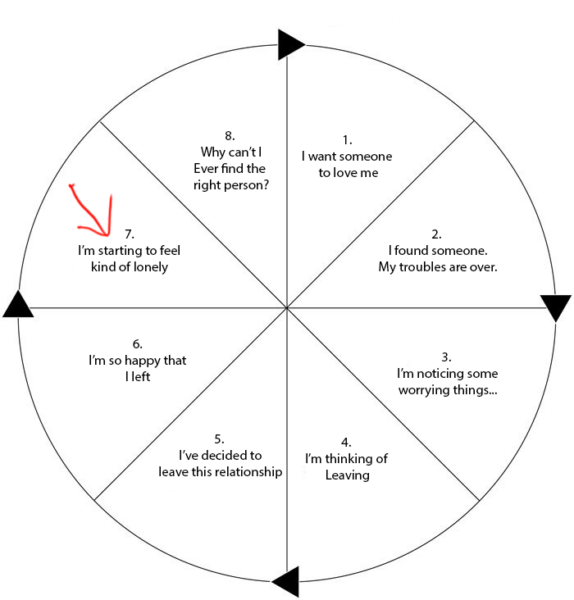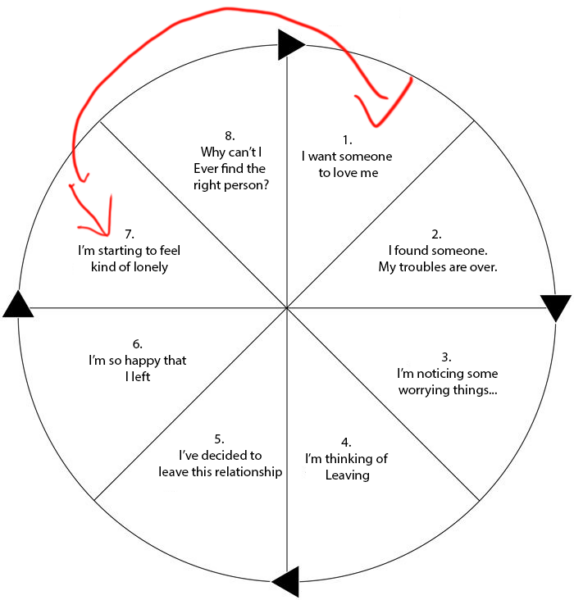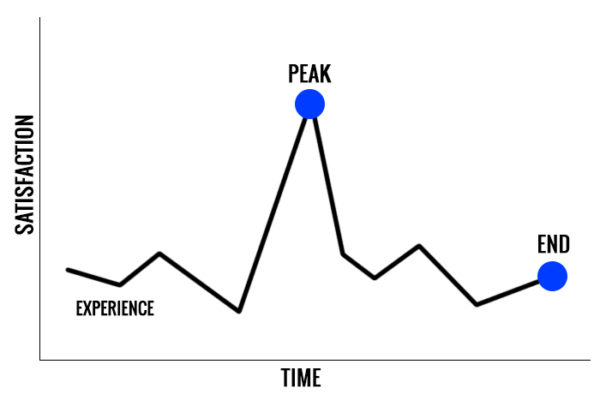Today we’re going to be talking about if it’s normal to still be in love with your ex after years apart.
Let’s put this question to rest right now,
In my opinion, it can be normal to still love your ex after years. However, a persons ability to move on completely from their ex after years apart is often indicative of where they are on the avoidant self fulfilling cycle
That’s a bit confusing I imagine if you aren’t familiar with the avoidant self fulfilling cycle. For now, here’s a quick list of the things we’re going to be covering in this article,
- Anxious Vs. Avoidant When It Comes To Letting Go
- Understanding The Avoidant Self Fulfilling Cycle
- The Phantom Ex Syndrome
You’ll notice that I’m focusing a lot on avoidants and how they act after a breakup. That’s mostly because my team and I believe that contrary to popular belief an avoidant, specifically fearful avoidants, will be the ones that will have trouble letting go long term.

What Are Your Chances of Getting Your Ex Boyfriend Back?
Take the quizAnxious Vs. Avoidant When It Comes To Letting Go
It might seem a bit odd that I’m talking so much about attachment styles when it comes to understanding the dynamics on if it’s normal to still be hung up on your ex after years.
But I’m a firm believer that attachments styles can give you direct insight into post breakup behaviors so getting intimate with the understanding how they work is essential.
Now, according to our internal research we’ve found that most of our clients (the person who was broken up with) tend to veer more towards anxious attachment styles,
According to our ultimate guide on attachment styles,
You’re considered to have an anxious attachment style if you have a greater need for intimacy and closeness. Someone with this style requires frequent reassurance of their partner’s love and commitment to the relationship.
I’ll circle back around to this in a moment.
Interestingly, we’ve found that a lot of our clients exes tend to veer more towards avoidant attachment styles,
This means that an avoidant will,
Those with an avoidant attachment style are extremely independent, self-directed, and often uncomfortable with intimacy. They’re basically commitment-phobes and experts at rationalizing their way out of any intimate situation.
But really this article is all about studying the dynamics of someone who is caught up after years apart.
The natural inclination would be to assume that the anxious person would be more hung up on their ex after years apart, right?
Well, that’s not what we’ve actually found.
It’s true that anxious individuals don’t handle breakups well.
- They blow their exes phone up
- Beg for them back
- Show up unannounced at their exes work
- Constantly seek validation from their ex
But after years have gone by what typically happens is the anxious person finds someone new to seek that validation from. They move on and hyper focus on that person. That’s not to say they don’t think about exes from time to time. They definitely do but they are often looking to the future.
On the other hand, avoidants often live in the past. Constantly seeking something they can’t have. Therefore, avoidant exes tend to be the ones more likely to harbor love after years apart and we think it has to do with this interesting littel self fulfilling cycle they get caught up in.
Understanding The Avoidant Self Fulfilling Cycle
This is the avoidant self fulfilling cycle,

What Are Your Chances of Getting Your Ex Boyfriend Back?
Take the quizI’ve talked about it so much these past few months you are probably getting tired of hearing about it but I’m a firm believer that by understanding this cycle you can learn a lot about post breakup behaviors.
There are eight stages to it.
- They start out wanting someone to love them
- They date you and things are great at first
- Eventually your need for open communication and intimacy triggers their avoidant side
- They begin to consider leaving the relationship
- They actually leave the relationship
- They are ecstatic that they left the relationship
- They begin to feel lonely and need to find a distraction for the loss
- They enter victim mentality and wonder why this is always happening to them
Now, the important consideration to take into account here is that the cycle moves like a wheel going around and around.
Sometimes it goes around with the same person. Sometimes it goes around with multiple people. What truly matters is that you understand for an avoidant, unless they somehow become more secure, they will always be caught in this cycle.
Let’s assume your ex broke up with you and then years later get back in touch with you. Very similar to what happened to one of my first podcast questions ever.
A woman named Natalie called in and presented the following situation to me,
- It has been 2 years since the breakup with her ex.
- In that 2 years she has started her own business, started dating again and feels very confident.
- Her ex has kind of come back into the picture lately congratulating her.
- When she was with him she kind of didn’t do a good job of having her own life/going out with friends.
- So, now that she does “have her own life” he has started finding her attractive again.
What probably ended up happening is that Natalie’s ex went through multiple variations of the cycle with different people. Eventually though, when he got to this stage, after a few revolutions,
He does what a typical avoidant person does and starts reminiscing about the past. We know this is common breakup behavior based on our research on nostalgia,
Essentially the avoidant will not start getting nostalgia about their ex until after they feel safe. They usually only feel safe if the following criteria has hit,
- They are in a relationship with someone else
- You are in a relationship with someone else
- A lot of time has gone by
Starting to sound familiar.
Another really interesting thing can happen to propagate this longing within an avoidant years after the breakup and that’s the origin of the phantom ex.
Understanding The Phantom Ex
I’m going to do you a solid. Probably one of the best websites I’ve ever found on attachment styles, specifically avoidant attachment styles, is this little beauty right here, www.freetoattach.com.
On that website they talk about the introduction of the phantom ex.
An avoidant person often has a story of a perfect ex in a relationship that wasn’t fully realised, the ‘one that got away’ to whom no one else can measure up.
So, what I often think happens is that when people are getting hung up on exes after years apart it’s because they are painting them as a phantom ex during this phase,
Whether that person has gone through a recent breakup or they’ve just been alone and are perpetually stuck feeling lonely they harken back to what feels comfortable.
And for the avoidant, an idealized version of a partner they can’t have is most comfortable.
Fawning from afar is definitely on brand for them but perhaps even more interesting is how perfectly this fits into the peak-end rule research.
If you aren’t familiar, the peak end rule is defined as,

What Are Your Chances of Getting Your Ex Boyfriend Back?
Take the quizThe peak–end rule is a cognitive bias that impacts how people remember past events. Intense positive or negative moments (the “peaks”) and the final moments of an experience (the “end”) are heavily weighted in our mental calculus. (source)
So, since we are dealing with a large amount of time, sometimes years, it makes sense that the way we remember past relationships are slightly altered.
During a breakup our memory tends to hyper focus on the end of the relationship and usually that end is fraught with arguments and pain.
You aren’t exactly a perfect phantom ex candidate.
But with time, usually a lot of it, the calculus suddenly changes. Those end moments that seem so awful begin to be forgotten and the focus comes in on the peak positive moments.
Suddenly you are a great phantom ex candidate.
Going back to Free To Attach,
The phantom ex operates because there is/was distance, not because the relationship was successful. But a fixation with a past partner affects budding new relationships, blocking them from getting close to someone else. Just the knowledge that this person is out there is enough to make any new partner seem insignificant by comparison, a subconscious distancing strategy.
Remember, an avoidant values their own independence and autonomy over everything else. So, a perfect relationship for them is one where they can keep full autonomy and admire you from afar.
Sound familiar?
For me personally, the question was never if it’s normal to still love your ex after years. It’s more about why people can still love your ex after years.
Once you figure that out and point to real research for why it’s happening you gain complete control over how to handle it.
